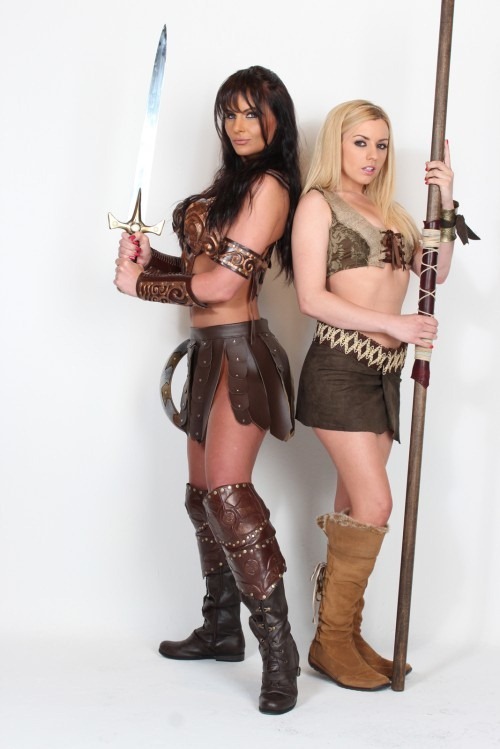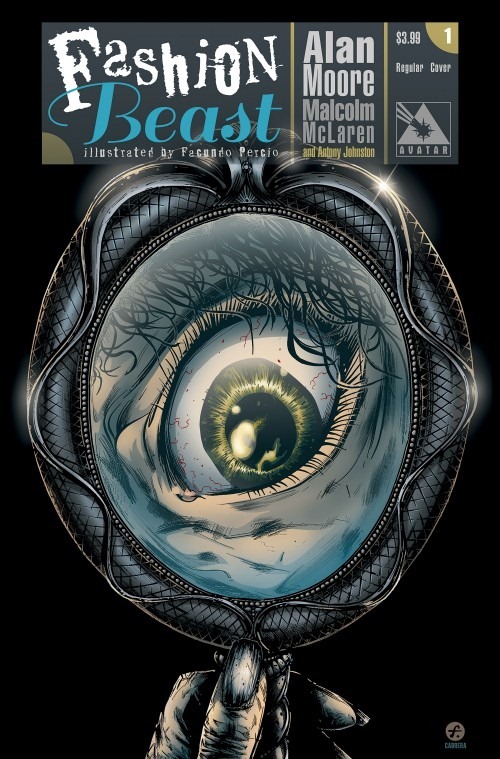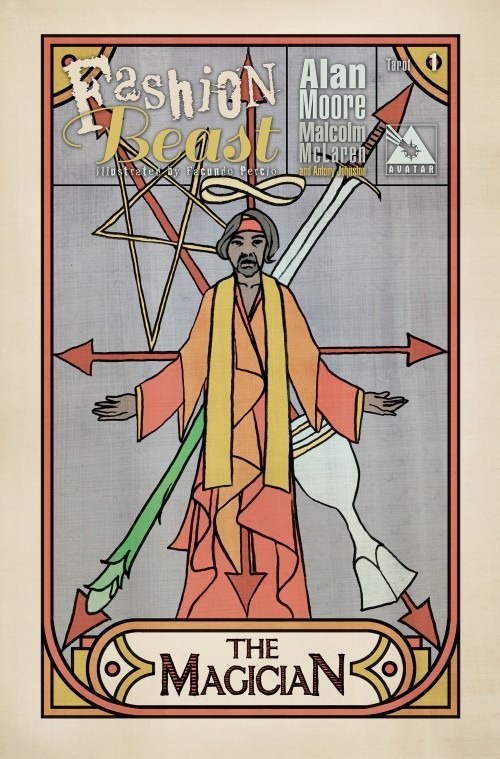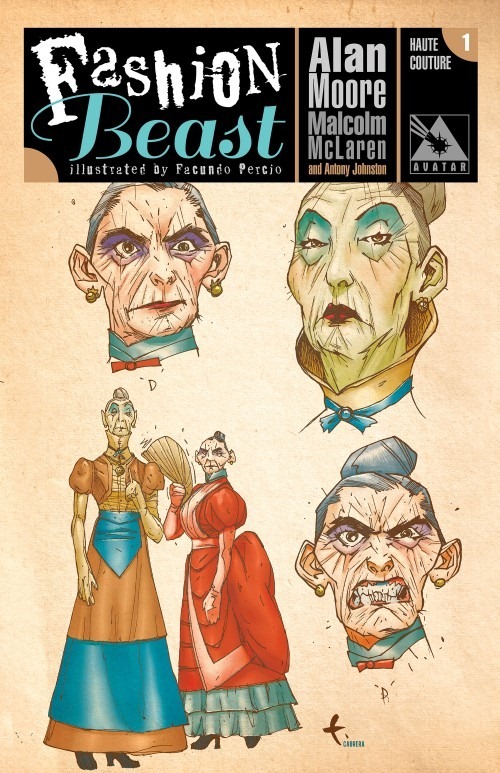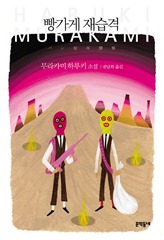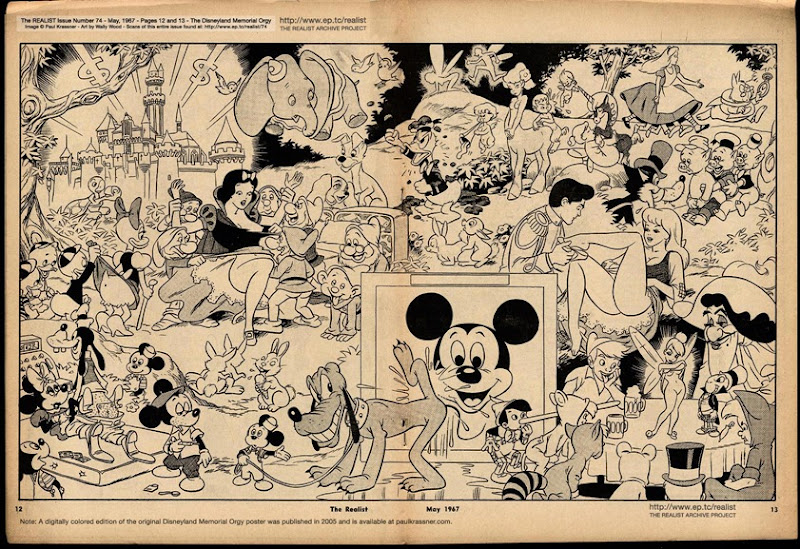Quando um louco parece completamente lúcido é o momento de colocar-lhe a camisa de força. ~ Edgar Allan Poe
sábado, 30 de junho de 2012
O XXX da questão
Como a internet derrubou o pornô
Louis Theroux volta a personagens que entrevistou há 15 anos para compor um retrato da decadência comercial dos filmes "hardcore". Nocauteada por vídeos caseiros e/ou gratuitos na internet, a indústria tenta se reinventar com produtos mais sofisticados e de "bom gosto", mas vê cachês e vendas minguarem.
LOUIS THEROUX
TRADUÇÃO RODRIGO LEITE
Em uma Bela casa numa rua sem saída no vale de San Fernando, na Califórnia, uma atriz enfrenta problemas com seus gemidos. Alexa Nicole (nome artístico) interpreta uma beldade latina em "A Love Story", filme pornográfico sobre um autor de livros românticos que sofre de um bloqueio criativo.
Está sendo gravada uma sequência de fantasia na qual Alexa vaga por corredores na penumbra, de camisola branca e com um castiçal nas mãos. Ela tropeça nos braços de seu amante, Miguel, interpretado por Xander Corvus, astro em ascensão que veste calça de couro, blusa com babados e colete. Sob o ardor da paixão, eles fazem amor numa espreguiçadeira.
Mas há um detalhe. Os gritos de prazer de Alexa, rápidos e agudos, não atendem aos padrões do diretor. "Menos pornô", ele diz. Como ilustração, ele propõe uma leitura diferente -menos urgente, mais feminina. "Yes, yes, yes!" Ele anuncia sua palavra-chave do dia: "Romantismo!". A produção é do estúdio Wicked Picture, especializado em filmes adultos sofisticados. Apesar da palavra "adultos", a ênfase nos gemidos revela que não se trata de um pornô qualquer.
Durante anos, a indústria pornográfica foi dominada por um vale-tudo anarquista em relação ao sexo. Diretores competiam para ver quem encenava as proezas mais ultrajantes, levando os atores ao limite de seus corpos. Não era fácil assistir a certas cenas, como eu mesmo descobri em 2004, quando visitei sets de filmagem para um livro que escrevi.
Os atos sexuais pareciam ter mais a ver com os reality shows em que as pessoas comem vermes vivos e vômito de porco que com alguma coisa erótica.
TRECHOS sábado
Ian McEwan
“Faz parte da nova ordem esse estreitamento da liberdade mental, do seu direito de divagar. Não faz muito tempo, seus pensamentos vagavam de um modo mais imprevisível, cobriam uma longa lista de assuntos. Desconfia que está virando um simplório, o sugestionável e afoito consumidor da ração de notícias, as migalhas que as autoridades deixam cair. É um cidadão dócil, que vê o Leviatã ficar mais forte, enquanto ele mesmo se agacha sob a sua sombra… Esse avião russo voou direto para dentro da sua insônia, e Henry sentiu-se perfeitamente feliz em deixar que a notícia e todo o processo de ínfimas alterações nervosas do noticiário, ao longo do dia, colorissem à vontade o seu estado emocional…”
“É uma condição da época, essa compulsão para ver como anda o mundo e unir-s à maioria, a uma comunidade de angústia. O hábito ficou mais forte nos últimos dois anos; estabeleceu-se uma nova escala de valores de notícias, por conta de cenas monstruosas e espetaculares (…) Todos têm medo disso, mas também uma aspiração mais sombria, na mente coletiva, uma ânsia de autopunição e uma curiosidade sacrílega. Assim como os hospitais têm os seus planos em tempos de crise, as redes de tevê ficam a postos para transmitir as notícias, e o público aguada. Maior, mais gritante, da próxima vez. Por favor, não deixe que aconteça. Mas, mesmo assim, deixe que eu veja tudo, na hora que estiver acontecendo, e de todos os ângulos, deixe que eu esteja entre os primeiros a saber…”
sexta-feira, 29 de junho de 2012
CURTA extrema unção
Três dias na vida de um rapaz que se muda para uma casa supostamente assombrada pelo fantasma de uma velha fanática religiosa.
quinta-feira, 28 de junho de 2012
adoro ficção científica
"Adoro ficção científica porque ela abre, de par em par, as porta do espaço e do tempo e, sobretudo, porque me permite abordar de maneira muito direta minhas preocupações essenciais."
- Moebius.
quarta-feira, 27 de junho de 2012
trecho a fera na selva
Henry James
Mas o amargor de repente lhe causou náusea, e foi como se ele visse com horror, na crua verdade, na crueldade de sua própria imagem, tudo que havia sido designado e cumprido. Viu a Selva de sua vida e a Fera à espreita; então, enquanto olhava percebeu, como que por uma vibração no ar que ela se erguia, enorme, horrenda, para o salto que o aniquilaria. Seus olhos se turvaram – a Fera estava perto; e virando-se instintivamente em sua alucinação, para evitá-la, tombou sobre o túmulo.
terça-feira, 26 de junho de 2012
FILME à meia-noite levarei sua alma
aterrorizante. alegórico. à frente de seu tempo. zé do caixão é um personagem antológico, tanto quanto drácula, frankenstein, a múmia…
TRECHOS serena
Ian McEwan
“Eu queria personagens em que pudesse acreditar, e queria que me deixassem curiosa sobre o que iria acontecer com eles…”
“Como funcionária de nível baixíssimo, o salário da minha primeira semana depois de feitos os descontos foi de quatorze libras e trinta pence, na nova moeda decimalizada, que ainda não tinha perdido o seu ar pouco sério, imaturo, fraudulento (…) Eu me virava de uma semana para outra, mas não estava me sentindo parte de um glamuroso mundo clandestino…”
“não vou perder muito tempo com a minha infância e a minha adolescência”
(“embora possa ter esquecido quase tudo por causa da névoa da erva”)
“… era narrado por um macaco falante dado a reflexões angustiadas sobre a sua amante, uma escritora que estava tendo dificuldades com o seu segundo romance (…) Só na última página fui descobrir que o conto que eu estava lendo era na verdade o conto que a mulher estava escrevendo. O macaco não existe, é um espectro, um ser criado pela imaginação irrequieta. Não. E não de novo. Isso não. Fora a coisa exagerada e bisonha do sexo interespécies, eu desconfiava instintivamente desse tipo de truquezinho ficcional. Eu queria um chão firme debaixo dos pés. Na minha opinião havia um contrato tácito com o leitor, que o escritor devia honrar. Nenhum elemento de um mundo imaginário e nenhum dos seus personagens deveria poder se dissolver por causa de um capricho do autor. O inventado tinha de ser tão sólido e consistente quanto o real…”
segunda-feira, 25 de junho de 2012
sábado, 23 de junho de 2012
TRAILER enganado
o novo filme de paul verhoeven parece um amálgama de sexo, intrigas, suspense e amoralidade.
quinta-feira, 21 de junho de 2012
this style thing
![]() Movement should be a counter, whether in action scenes or dialogue or whatever. It counters where your eye is going. This style thing, for me it's all fitted to the action, to the script, to the characters.
Movement should be a counter, whether in action scenes or dialogue or whatever. It counters where your eye is going. This style thing, for me it's all fitted to the action, to the script, to the characters. ![]()
-Samuel Fuller
terça-feira, 19 de junho de 2012
trecho sidarta
Herman Hesse
Tudo isto são coisas, coisas que nós podemos amar. Mas não posso amar palavras. É por isso que não aprecio as doutrinas, não têm dureza ou moleza, não têm cores, não têm cheiro, não têm gosto, nada têm senão palavras. Talvez seja isso que te impede de encontrares a paz, talvez sejam as palavras em excesso. Porque também libertação e virtude, também Samsara e Nirvana são meras palavras. Nada existe que seja o Nirvana: apenas existe a palavra Nirvana.
segunda-feira, 18 de junho de 2012
TRECHO uLySsEs
–Ele sabia o que era o dinheiro, o senhor Deasy disse. Ganhou dinheiro. Poeta, sim, mas inglês também. O senhor sabe qual é o orgulho dos ingleses? O senhor sabe qual a palavra mais orgulhosa que jamais se ouvirá da boca de um inglês?
O dono do mar. Seus olhos marefrios por sobre a baía vazia: parece que a história vai levar a culpa: por sobre mim e minhas palavras, indetestante.
– Que em seu império, Stephen disse, o sol nunca se põe.
– Bah! o senhor Deasy gritou. Isso não é inglês. Foi um celta francês que disse isso. Batia o cofrinho contra a unha do polegar.
–Eu vou lhe dizer, ele disse solene. ‘Não devo nada a ninguém’.
Bom menino, bom menino.
– ‘Não devo nada a ninguém. Nunca pedi um xelim emprestado na vida’. O senhor consegue sentir isso? ‘Não devo um tostão’. Consegue?
Mulligan, nove libras, três pares de meias, um par de berguezins, gravatas. Curran, dez guinéus. McCann, um guinéu. Fred Ryan, dois xelins. Temple, dois almoços. Russell, um guinéu, Cousins, dez xelins, Bob Reynolds, meio guinéu, Kohler, três guinéus, senhora McKernan, cinco semanas de estadia. O calombo que eu tenho é inútil.
– Por ora, não, Stephen respondeu.
domingo, 17 de junho de 2012
TRECHO A VIDA DE UM IDIOTA
Masao Kume
Deixo-lhe toda a liberdade de publicar ou não este manuscrito, assim como o direito de escolher o momento e a maneira de fazê-lo. Você conhece, penso eu, a maior parte dos personagens que aparecem neste texto. Mas, no caso de sua publicação, desejaria que nenhum índice de nomes fosse acrescentado. Vivo, no momento, a mais infeliz das felicidades. Mas, por estranho que possa parecer, não me arrependo de nada. Lamento somente aqueles que tiveram o mau marido, o mau filho, o mau pai que eu fui. Sendo assim, adeus. Neste manuscrito, não creio que tenha, ao menos conscientemente, tentado defender minha posição pessoal.
Uma última coisa: confio este manuscrito a você, em particular, pois creio que certamente é quem melhor me conhece. Tente - se puder - rir-se de minha idiotice visível neste manuscrito (isso se você desnudar minha máscara de homem urbano).
20 de junho de 1927
Ryûnosuke Akutagawa
1 ÉPOCA
Era no primeiro andar de uma livraria. Ele, aos vinte anos, montado numa escada de estilo europeu apoiada contra a prateleira, procurava livros novos. Maupassant, Baudelaire, Strindberg, Ibsen, Shaw, Tolstói... Enquanto isso, o fim do dia se aproximava. Mas ele continuava a ler, avidamente, os títulos inscritos nas lombadas dos livros. Mais do que livros, enfileirava-se ali o próprio fim do século. Nietzsche, Verlaine, os irmãos Goncourt, Dostoiévski, Hauptmann, Flaubert... Lutando contra a penumbra, ia enumerando seus nomes. Mas os livros começaram, um após o outro, a se fundir na sombra letárgica. Finalmente, abandonou sua perseverança e começou a descer a escada de estilo europeu. Nesse momento, uma lâmpada nua se acendeu, de repente, bem sobre sua cabeça. Detendo-se na escada, ele observou de cima os vendedores e os clientes que se moviam entre os livros. Estavam estranhamente pequenos. E ainda mais: pareciam tão miseráveis...
"A vida humana não vale nem mesmo um verso de Baudelaire."
Do alto da escada, durante algum tempo, ele deixou seu olhar percorrer aqueles seres...
2 A MÃE
Todos os loucos estavam igualmente vestidos de cinzaescuro. A ampla sala, por causa disso, parecia ainda mais deprimente. Sentado ao órgão, um dos loucos tocava com fervor um hino cristão. Ao mesmo tempo, bem no meio da sala, outro dançava ou, mais exatamente, se agitava.
Ele observava o espetáculo em companhia de um médico de aspecto saudável. Sua própria mãe, dez anos atrás, não diferia em nada daqueles seres. Em nada... - em seu mau cheiro, ele reconhecia perfeitamente o de sua mãe.
- Bem, vamos!
Precedendo-o no corredor, o médico se dirigiu a uma outra sala. Lá, num canto, havia alguns cérebros mergulhados em enormes garrafas arredondadas, de vidro, cheias de álcool. Sobre um dos cérebros, ele percebeu uma substância esbranquiçada. Era bem parecido com uma clara de ovo escorrida. Enquanto conversava com o médico, de pé, pensou ainda uma vez em sua mãe.
- Mas, sabe? Este cérebro era de um engenheiro da firma de instalações elétricas. Ele pensava que era um grande dínamo, de cor preta, brilhante.
Evitando os olhos do médico, contemplava a vista além da janela. Mas lá nada havia além de um muro de tijolos coberto por cacos de vidro. Naquele muro, cresciammusgos ralos que deixavam áreas de um vago brilho esbranquiçado.
3 A CASA
Ele ocupava um quarto no primeiro andar de uma casa no subúrbio. Por causa da instabilidade do solo, era um pavimento estranhamente inclinado. Era lá que muitas vezes sua tia brigava com ele e, não raro, seus pais adotivos também intervinham. No entanto, a pessoa a quem mais amava era sua tia. Permanecera solteira a vida toda e era, já na época em que ele tinha vinte anos, uma senhora de quase sessenta. No primeiro andar dessa casa de subúrbio, várias vezes ele se perguntara se os que se amam deveriam necessariamente se atormentar uns aos outros. Sentindo, enquanto isso, na inclinação do primeiro andar, qualquer coisa de sinistro...
4 TÓQUIO
O rio Sumida estava carregado de nuvens pesadas. Ele contemplava as cerejeiras de Mukôjima pela janela de um pequeno barco a vapor. As cerejeiras em flor eram, a seus olhos, tão deprimentes quanto uma fileira de trapos. Mas naquelas árvores - naquelas cerejeiras de Mukôjima que lá estavam desde a era Edo -, ele reconhecia sua própria imagem.
5 O EGO
Sentado à mesa de um café em companhia de um de seus colegas mais velhos,¹ ele tirava sem parar baforadas de seu cigarro. Pouco abria a boca. No entanto, ouvia atentamente as palavras do colega.
- Hoje passei metade do dia andando de carro.
- Você tinha algum assunto a tratar?
O queixo apoiado na mão, o colega lhe respondeu com a maior espontaneidade:
- Não, foi apenas porque tive vontade.
Aquelas palavras o libertaram em direção a um mundo que ele desconhecia - o reino do Ego próximo dos deuses. Sentiu uma espécie de dor. Ao mesmo tempo, no entanto, sentiu também alegria. Aquele café era minúsculo. Contudo, sob o quadro do deus Pã, uma seringueira plantada num vaso vermelho deixava pender preguiçosamente suas folhas polpudas.
sábado, 16 de junho de 2012
XENA A PRINCESA GUERREIRA XXX
Phoenix Marie será Xena e Gabrielle será interpretada por Lexi Belle na versão pornô da saudosa série… Eba!
CONTO The Second Bakery Attack
Haruki Murakami 村上 春樹
I'm still not sure I made the right choice when I told my wife about the bakery attack. But then, it might not have been a question of right and wrong. Which is to say that wrong choices can produce right results, and vice versa. I myself have adopted the position that, in fact, we never choose anything at all. Things happen. Or not.
If you look at it this way, it just so happens that I told my wife about the bakery attack. I hadn't been planning to bring it up--I had forgotten all about it--but it wasn't one of those now-that-you-mention-it kind of things, either.
What reminded me of the bakery attack was an unbearable hunger. It hit just before two o'clock in the morning. We had eaten a light supper at six, crawled into bed at nine-thirty, and gone to sleep. For some reason, we woke up at exactly the same moment. A few minutes later, the pangs struck with the force of the tornado in The Wizard of Oz. These were tremendous, overpowering hunger pangs.
Our refrigerator contained not a single item that could be technically categorized as food. We had a bottle of French dressing, six cans of beer, two shriveled onions, a stick of butter, and a box of refrigerator deodorizer. With only two weeks of married life behind us, we had yet to establish a precise conjugal understanding with regard to the rules of dietary behavior. Let alone anything else.
I had a job in a law firm at the time, and she was doing secretarial work at a design school. I was either twenty-eight or twenty-nine--why can't I remember the exact year we married?--and she was two years and eight months younger. Groceries were the last things on our minds.
We both felt too hungry to go back to sleep, but it hurt just to lie there. On the other hand, we were also too hungry to do anything useful. We got out of bed and drifted into the kitchen, ending up across the table from each other. What could have caused such violent hunger pangs?
We took turns opening the refrigerator door and hoping, but no matter how many times we looked inside, the contents never changed. Beer and onions and butter and dressing and deodorizer. It might have been possible to saute the onions in the butter, but there was no chance those two shriveled onions could fill our empty stomachs. Onions are meant to be eaten with other things. They are not the kind of food you use to satisfy an appetite.
"Would madame care for some French dressing sauteed in deodorizer?"
I expected her to ignore my attempt at humor, and she did. "Let's get in the car and look for an all-night restaurant," I said. "There must be one on the highway."
She rejected that suggestion. "We can't. You're not supposed to go out to eat after midnight." She was old-fashioned in that way.
I breathed once and said, "I guess not."
Whenever my wife expressed such an opinion (or thesis) back then, it reverberated in my ears with the authority of a revelation. Maybe that's what happens with newlyweds, I don't know. But when she said this to me, I began to think that this was a special hunger, not one that could be satisfied through the mere expedient of taking it to an all-night restaurant on the highway.
A special kind of hunger. And what might that be?
I can present it here in the form of a cinematic image.
One, I am in a little boat, floating on a quiet sea. Two, I look down, and in the water, I see the peak of a volcano thrusting up from the ocean floor. Three, the peak seems pretty close to the water's surface, but just how close I cannot tell. Four, this is because the hypertransparency of the water interferes with the perception of distance.
This is a fairly accurate description of the image that arose in my mind during the two or three seconds between the time my wife said she refused to go to an all-night restaurant and I agreed with my "I guess not." Not being Sigmund Freud, I was, of course, unable to analyze with any precision what this image signified, but I knew intuitively that it was a revelation. Which is why--the almost grotesque intensity of my hunger notwithstanding--I all but automatically agreed with her thesis (or declaration).
We did the only thing we could do: opened the beer. It was a lot better than eating those onions. She didn't like beer much, so we divided the cans, two for her, four for me. While I was drinking the first one, she searched the kitchen shelves like a squirrel in November. Eventually, she turned up a package that had four butter cookies in the bottom. They were leftovers, soft and soggy, but we each ate two, savoring every crumb.
It was no use. Upon this hunger of ours, as vast and boundless as the Sinai Peninsula, the butter cookies and beer left not a trace.
Time oozed through the dark like a lead weight in a fish's gut. I read the print on the aluminum beer cans. I stared at my watch. I looked at the refrigerator door. I turned the pages of yesterday's paper. I used the edge of a postcard to scrape together the cookie crumbs on the tabletop.
"I've never been this hungry in my whole life," she said. "I wonder if it has anything to do with being married."
"Maybe," I said. "Or maybe not."
While she hunted for more fragments of food, I leaned over the edge of my boat and looked down at the peak of the underwater volcano. The clarity of the ocean water all around the boat gave me an unsettled feeling, as if a hollow had opened somewhere behind my solar plexus--a hermetically sealed cavern that had neither entrance nor exit. Something about this weird sense of absence--this sense of the existential reality of nonexistence--resembled the paralyzing fear you might feel when you climb to the very top of a high steeple. This connection between hunger and acrophobia was a new discovery for me.
Which is when it occurred to me that I had once before had this same kind of experience. My stomach had been just as empty then...When?...Oh, sure, that was--
"The time of the bakery attack," I heard myself saying.
"The bakery attack? What are you talking about?"
And so it started.
"I once attacked a bakery. Long time ago. Not a big bakery. Not famous. The bread was nothing special. Not bad, either. One of those ordinary little neighborhood bakeries right in the middle of a block of shops. Some old guy ran it who did everything himself. Baked in the morning, and when he sold out, he closed up for the day."
"If you were going to attack a bakery, why that one?"
"Well, there was no point in attacking a big bakery. All we wanted was bread, not money. We were attackers, not robbers."
"We? Who's we?"
"My best friend back then. Ten years ago. We were so broke we couldn't buy toothpaste. Never had enough food. We did some pretty awful things to get our hands on food. The bakery attack was one."
"I don't get it." She looked hard at me. Her eyes could have been searching for a faded star in the morning sky. "Why didn't you get a job? You could have worked after school. That would have been easier than attacking bakeries."
"We didn't want to work. We were absolutely clear on that."
"Well, you're working now, aren't you?"
I nodded and sucked some more beer. Then I rubbed my eyes. A kind of beery mud had oozed into my brain and was struggling with hunger pangs.
"Times change. People change," I said. "Let's go back to bed. We've got to get up early."
"I'm not sleepy. I want you to tell me about the bakery attack."
"There's nothing to tell. No action. No excitement."
"Was it a success?"
I gave up on sleep and ripped open another beer. Once she gets interested in a story, she has to hear it all the way through. That's just the way she is.
"Well, it was kind of a success. And kind of not. We got what we wanted. But as a holdup, it didn't work. The baker gave us the bread before we could take it from him."
"Free?"
"Not exactly, no. That's the hard part." I shook my head. "The baker was a classical-music freak, and when we got there, he was listening to an album of Wagner overtures. So he made us a deal. If we would listen to the record all the way through, we could take as much bread as we liked. I talked it over with my buddy and we figured, Okay. It wouldn't be work in the purest sense of the word, and it wouldn't hurt anybody. So we put our knives back in our bag, pulled up a couple of chairs, and listened to the overtures to Tannhauser and The Flying Dutchman."
"And after that, you got your bread?"
"Right. Most of what he had in the shop. Stuffed it in our bag and took it home. Kept us fed for maybe four or five days." I took another sip. Like soundless waves from an undersea earthquake, my sleepiness gave my boat a long, slow rocking.
"Of course, we accomplished our mission. We got the bread. But you couldn't say we had committed a crime. It was more of an exchange. We listened to Wagner with him, and in return, we got our bread. Legally speaking, it was more like a commercial transaction."
"But listening to Wagner is not work," she said.
"Oh, no, absolutely not. If the baker had insisted that we wash his dishes or clean his windows or something, we would have turned him down. But he didn't. All he wanted from us was to listen to his Wagner LP from beginning to end. Nobody could have anticipated that. I mean--Wagner? It was like the baker put a curse on us. Now that I think of it, we should have refused. We should have threatened him with our knives and taken the damn bread. Then there wouldn't have been any problem."
"You had a problem?"
I rubbed my eyes again.
"Sort of. Nothing you could put your finger on. But things started to change after that. It was kind of a turning point. Like, I went back to the university, and I graduated, and I started working for the firm and studying the bar exam, and I met you and got married. I never did anything like that again. No more bakery attacks."
"That's it?"
"Yup, that's all there was to it." I drank the last of the beer. Now all six cans were gone. Six pull-tabs lay in the ashtray like scales from a mermaid.
Of course, it wasn't true that nothing had happened as a result of the bakery attack. There were plenty of things that you could have easily put your finger on, but I didn't want to talk about them with her.
"So, this friend of yours, what's he doing now?"
"I have no idea. Something happened, some nothing kind of thing, and we stopped hanging around together. I haven't seen him since. I don't know what he's doing."
For awhile, she didn't speak. She probably sensed that I wasn't telling her the whole story. But she wasn't ready to press me on it.
"Still," she said, "that's why you two broke up, isn't it? The bakery attack was the direct cause."
"Maybe so. I guess it was more intense than either of us realized. We talked about the relationship of bread to Wagner for days after that. We kept asking ourselves if we had made the right choice. We couldn't decide. Of course, if you look at it sensibly, we did make the right choice. Nobody got hurt. Everybody got what he wanted. The baker--I still can't figure out why he did what he did--but anyway, he succeeded with his Wagner propaganda. And we succeeded in stuffing our faces with bread.
"But even so, we had this feeling that we had made a terrible mistake. And somehow, this mistake has just stayed there, unresolved, casting a dark shadow on our lives. That's why I used the word 'curse.' It's true. It was like a curse."
"Do you think you still have it?"
I took the six pull-tabs from the ashtray and arranged them into an aluminum ring the size of a bracelet.
"Who knows? I don't know. I bet the world is full of curses. It's hard to tell which curse makes any one thing go wrong."
"That's not true." She looked right at me. "You can tell, if you think about it. And unless you, yourself, personally break the curse, it'll stick with you like a toothache. It'll torture you till you die. And not just you. Me, too."
"You?"
"Well, I'm your best friend now, aren't I? Why do you think we're both so hungry? I never, ever, once in my life felt a hunger like this until I married you. Don't you think it's abnormal? Your curse is working on me, too."
I nodded. Then I broke up the ring of pull-tabs and put them back in the ashtray. I didn't know if she was right, but I did feel she was onto something.
The feeling of starvation was back, stronger than ever, and it was giving me a deep headache. Every twinge of my stomach was being transmitted to the core of my head by a clutch cable, as if my insides were equipped with all kinds of complicated machinery.
I took another look at my undersea volcano. The water was clearer than before--much clearer. Unless you looked closely, you might not even notice it was there. It felt as though the boat were floating in midair, with absolutely nothing to support it. I could see every little pebble on the bottom. All I had to do was reach out and touch them.
"We've only been living together for two weeks," she said, "but all this time I've been feeling some kind of weird presence." She looked directly into my eyes and brought her hands together on the tabletop, her fingers interlocking. "Of course, I didn't know it was a curse until now. This explains everything. You're under a curse."
"What kind of presence?"
"Like there's this heavy, dusty curtain that hasn't been washed for years, hanging down from the ceiling."
"Maybe it's not a curse. Maybe it's just me," I said, and smiled.
She did not smile.
"No, it's not you," she said.
"Okay, supposed you're right. Suppose it is a curse. What can I do about it?"
"Attack another bakery. Right away. Now. It's the only way."
"Now?"
"Yes. Now. While you're still hungry. You have to finish what you left unfinished."
"But it's the middle of the night. Would a bakery be open now?"
"We'll find one. Tokyo's a big city. There must be at least one all-night bakery."
We got into my old Corolla and started drifting around the streets of Tokyo at 2:30 a.m., looking for a bakery. There we were, me clutching the steering wheel, she in the navigator's seat, the two of us scanning the street like hungry eagles in search of prey. Stretched out on the backseat, long and stiff as a dead fish, was a Remington automatic shotgun. Its shells rustled dryly in the pocket of my wife's windbreaker. We had two black ski masks in the glove compartment. Why my wife owned a shotgun, I had no idea. Or ski masks. Neither of us had ever skied. But she didn't explain and I didn't ask. Married life is weird, I felt.
Impeccably equipped, we were nevertheless unable to find an all-night bakery. I drove through the empty streets, from Yoyogi to Shinjuku, on to Yosuya and Akasaka, Aoyama, Hiroo, Roppongi, Daikanyama, and Shibuya. Late-night Tokyo had all kinds of people and shops, but no bakeries.
Twice we encountered patrol cars. One was huddled at the side of the road, trying to look inconspicuous. The other slowly overtook us and crept past, finally moving off into the distance. Both times I grew damp under the arms, but my wife's concentration never faltered. She was looking for that bakery. Every time she shifted the angle of her body, the shotgun shells in her pocket rustled like buckwheat husks in an old-fashioned pillow.
"Let's forget it," I said. "There aren't any bakeries open at this time of night. You've got to plan for this kind of thing or else--"
"Stop the car!"
I slammed on the brakes.
"This is the place," she said.
The shops along the street had their shutters rolled down, forming dark, silent walls on either side. A barbershop sign hung in the dark like a twisted, chilling glass eye. There was a bright McDonald's hamburger sign some two hundred yards ahead, but nothing else.
"I don't see any bakery," I said.
Without a word, she opened the glove compartment and pulled out a roll of cloth-backed tape. Holding this, she stepped out of the car. I got out on my side. Kneeling at the front end, she tore off a length of tape and covered the numbers on the license plate. Then she went around to the back and did the same. There was a practiced efficiency to her movements. I stood on the curb staring at her.
"We're going to take that McDonald's," she said, as coolly as if she were announcing what we would have for dinner.
"McDonald's is not a bakery," I pointed out to her.
"It's like a bakery," she said. "Sometimes you have to compromise. Let's go."
I drove to the McDonald's and parked in the lot. She handed me the blanket-wrapped shotgun.
"I've never fired a gun in my life," I protested.
"You don't have to fire it. Just hold it. Okay? Do as I say. We walk right in, and as soon as they say, 'Welcome to McDonald's,' we slip on our masks. Got that?"
"Sure, but--"
"Then you shove the gun in their faces and make all the workers and customers get together. Fast. I'll do the rest."
"But--"
"How many hamburgers do you think we'll need? Thirty?"
"I guess so." With a sigh, I took the shotgun and rolled back the blanket a little. The thing was as heavy as a sandbag and as black as a dark night.
"Do we really have to do this?" I asked, half to her and half to myself.
"Of course we do."
Wearing a McDonald's hat, the girl behind the counter flashed me a McDonald's smile and said, "Welcome to McDonald's." I hadn't thought that girls would work at McDonald's late at night, so the sight of her confused me for a second. But only for a second. I caught myself and pulled on the mask. Confronted with this suddenly masked duo, the girl gaped at us.
Obviously, the McDonald's hospitality manual said nothing about how do deal with a situation like this. She had been starting to form the phrase that comes after "Welcome to McDonald's," but her mouth seemed to stiffen and the words wouldn't come out. Even so, like a crescent moon in the dawn sky, the hint of a professional smile lingered at the edges of her lips.
As quickly as I could manage, I unwrapped the shotgun and aimed it in the direction of the tables, but the only customers there were a young couple--students, probably--and they were facedown on the plastic table, sound asleep. Their two heads and two strawberry-milk-shake cups were aligned on the table like an avant-garde sculpture. They slept the sleep of the dead. They didn't look likely to obstruct our operation, so I swung my shotgun back toward the counter.
All together, there were three McDonald's workers. The girl at the counter, the manager--a guy with a pale, egg-shaped face, probably in his late twenties--and a student type in the kitchen--a thin shadow of a guy with nothing on his face that you could read as an expression. They stood together behind the register, staring into the muzzle of my shotgun like tourists peering down an Incan well. No one screamed, and no one made a threatening move. The gun was so heavy I had to rest the barrel on top of the cash register, my finger on the trigger.
"I'll give you the money," said the manager, his voice hoarse. "They collected it at eleven, so we don't have too much, but you can have everything. We're insured."
"Lower the front shutter and turn off the sign," said my wife.
"Wait a minute," said the manager. "I can't do that. I'll be held responsible if I close up without permission."
My wife repeated her order, slowly. He seemed torn.
"You'd better do what she says," I warned him.
He looked at the muzzle of the gun atop the register, then at my wife, and then back at the gun. He finally resigned himself to the inevitable. He turned off the sign and hit a switch on an electrical panel that lowered the shutter. I kept my eye on him, worried that he might hit a burglar alarm, but apparently McDonald's don't have burglar alarms. Maybe it had never occurred to anybody to attack one.
The front shutter made a huge racket when it closed, like an empty bucket being smashed with a baseball bat, but the couple sleeping at their table was still out cold. Talk about a sound sleep: I hadn't seen anything like that in years.
"Thirty Big Macs. For takeout," said my wife.
"Let me just give you the money," pleaded the manager. "I'll give you more than you need. You can go buy food somewhere else. This is going to mess up my accounts and--"
"You'd better do what she says," I said again.
The three of them went into the kitchen area together and started making the thirty Big Macs. The student grilled the burgers, the manager put them in buns, and the girl wrapped them up. Nobody said a word.
I leaned against a big refrigerator, aiming the gun toward the griddle. The meat patties were lined up on the griddle like brown polka dots, sizzling. The sweet smell of grilling meat burrowed into every pore of my body like a swarm of microscopic bugs, dissolving into my blood and circulating to the farthest corners, then massing together inside my hermetically sealed hunger cavern, clinging to its pink walls.
A pile of white-wrapped burgers was growing nearby. I wanted to grab and tear into them, but I could not be certain that such an act would be consistent with our objective. I had to wait. In the hot kitchen area, I started sweating under my ski mask.
The McDonald's people sneaked glances at the muzzle of the shotgun. I scratched my ears with the little finger of my left hand. My ears always get itchy when I'm nervous. Jabbing my finger into an ear through the wool, I was making the gun barrel wobble up and down, which seemed to bother them. It couldn't have gone off accidentally, because I had the safety on, but they didn't know that and I wasn't about to tell them.
My wife counted the finished hamburgers and put them into two small shopping bags, fifteen burgers to a bag.
"Why do you have to do this?" the girl asked me. "Why don't you just take the money and buy something you like? What's the good of eating thirty Big Macs?"
I shook my head.
My wife explained, "We're sorry, really. But there weren't any bakeries open. If there had been, we would have attacked a bakery."
That seemed to satisfy them. At least they didn't ask any more questions. Then my wife ordered two large Cokes from the girl and paid for them.
"We're stealing bread, nothing else," she said. The girl responded with a complicated head movement, sort of like nodding and sort of like shaking. She was probably trying to do both at the same time. I thought I had some idea how she felt.
My wife then pulled a ball of twine from her pocket--she came equipped--and tied the three to a post as expertly as if she were sewing on buttons. She asked if the cord hurt, or if anyone wanted to go to the toilet, but no one said a word. I wrapped the gun in the blanket, she picked up the shopping bags, and out we went. The customers at the table were still asleep, like a couple of deep-sea fish. What would it have taken to rouse them from a sleep so deep?
We drove for a half hour, found an empty parking lot by a building, and pulled in. There we ate hamburgers and drank our Cokes. I sent six Big Macs down to the cavern of my stomach, and she ate four. That left twenty Big Macs in the back seat. Our hunger--that hunger that had felt as if it could go on forever--vanished as the dawn was breaking. The first light of the sun dyed the building's filthy walls purple and made a giant SONY BETA ad tower glow with painful intensity. Soon the whine of highway truck tires was joined by the chirping of birds. The American Armed Forces radio was playing cowboy music. We shared a cigarette. Afterward, she rested her head on my shoulder.
"Still was it really necessary for us. to do this?" I asked.
"Of course it was!" With one deep sigh, she fell asleep against me. She felt as soft and as light as a kitten.
Alone now, I leaned over the edge of my boat and looked down to the bottom of the sea. The volcano was gone. The water's calm surface reflected the blue of the sky. Little waves--like silk pajamas fluttering in a breeze--lapped against the side of the boat. There was nothing else.
I stretched out in the bottom of the boat and closed my eyes, waiting for the rising tide to carry me where I belonged.
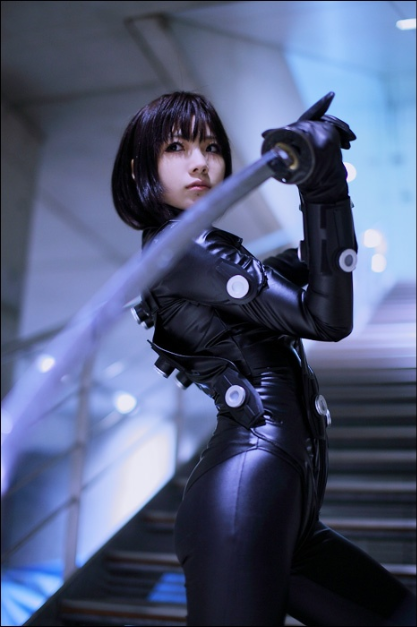
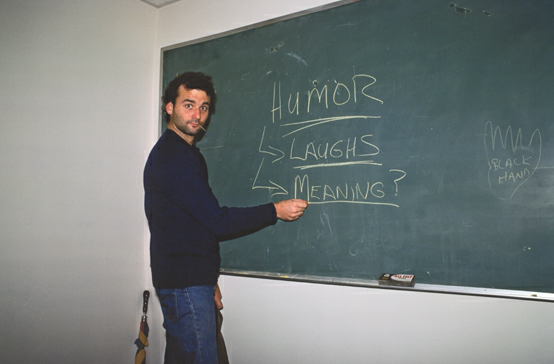



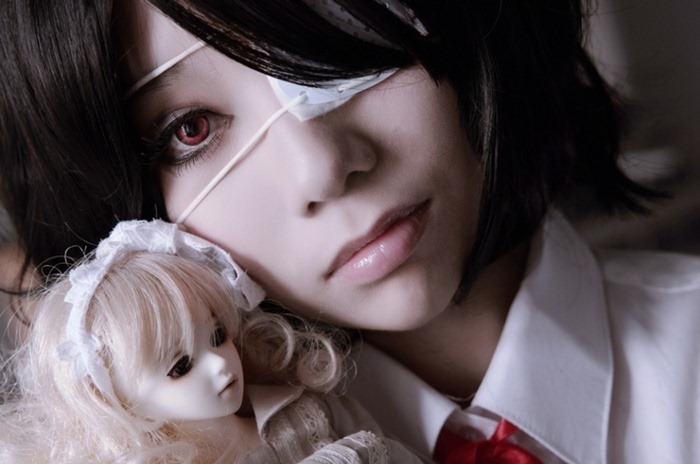
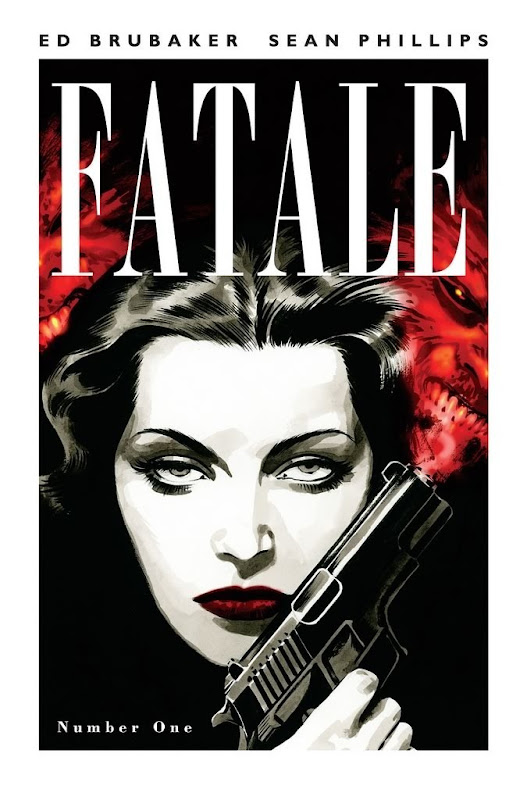
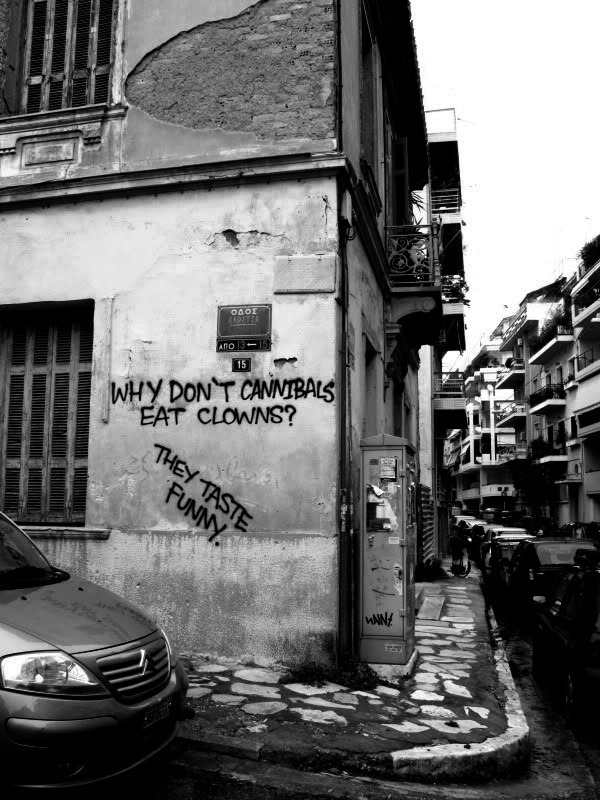

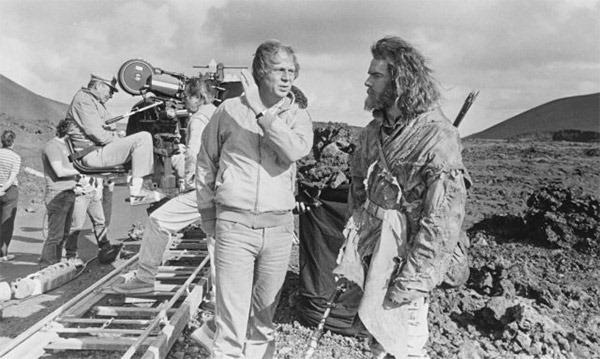
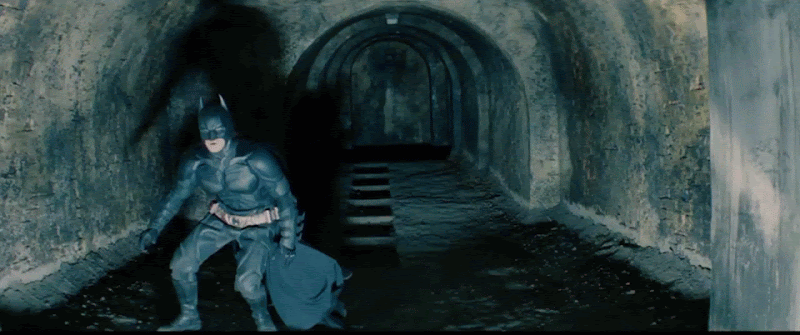
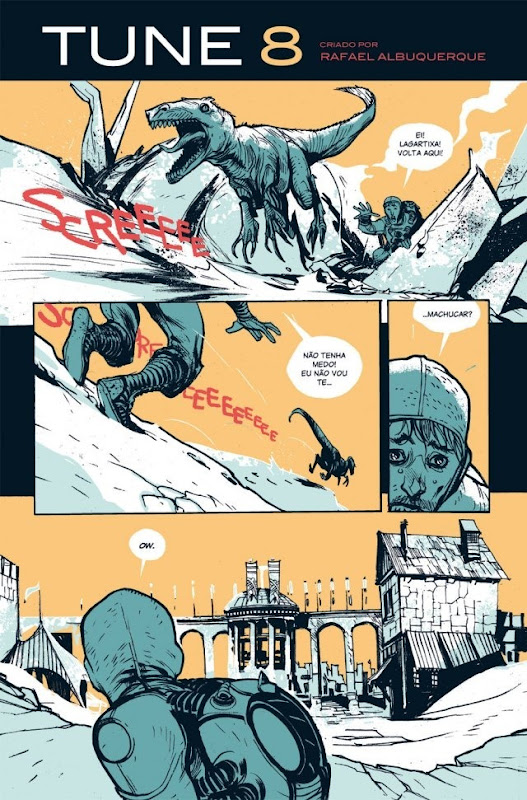
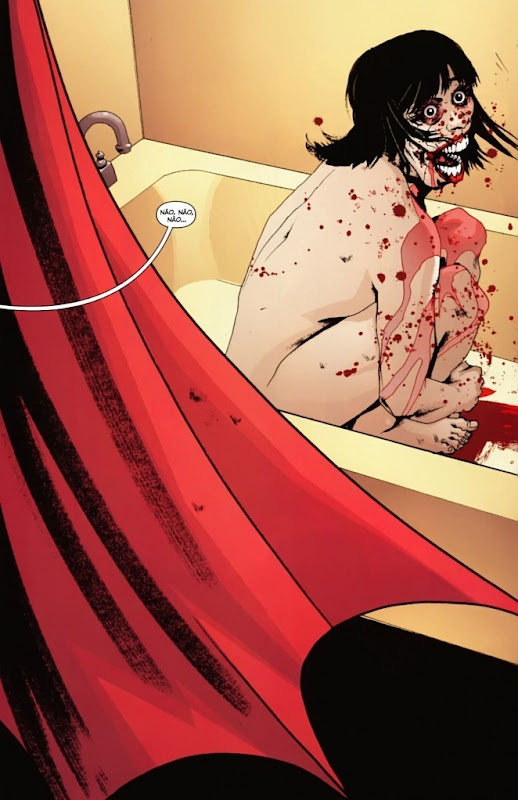
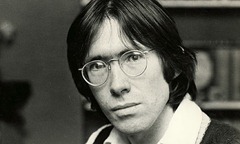
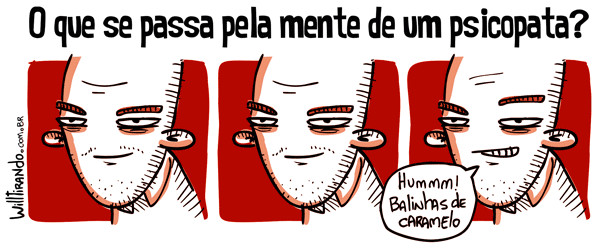
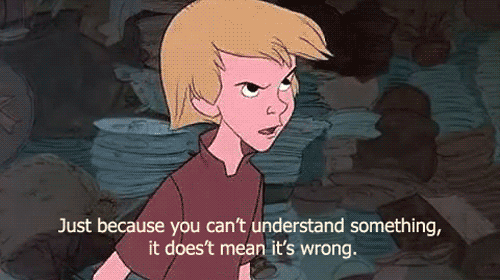
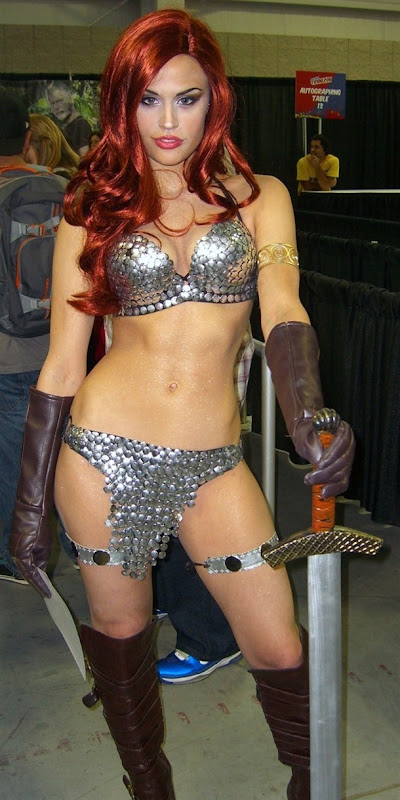
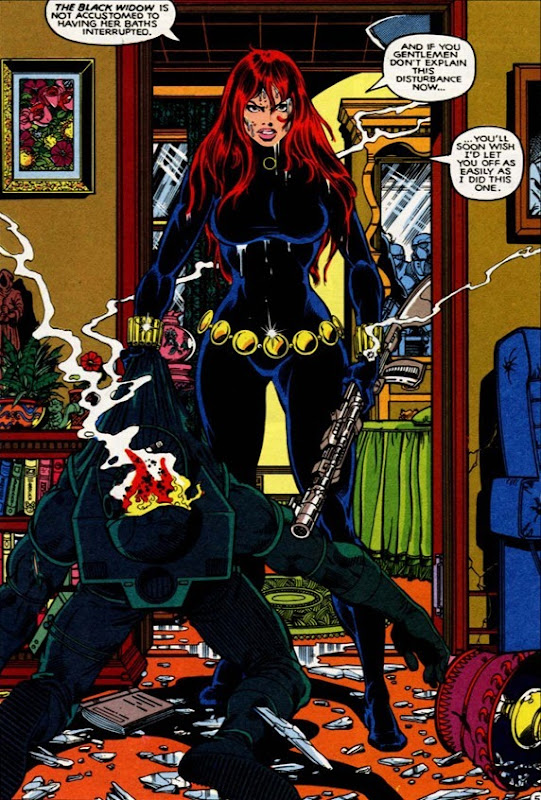
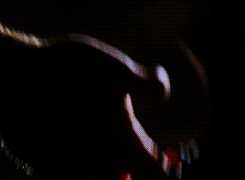
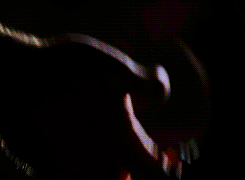
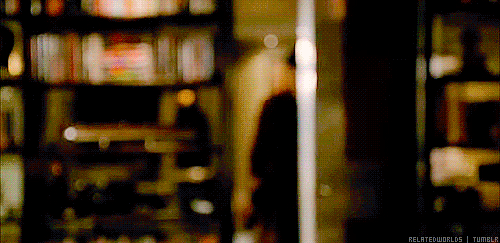
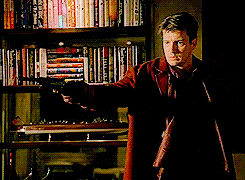

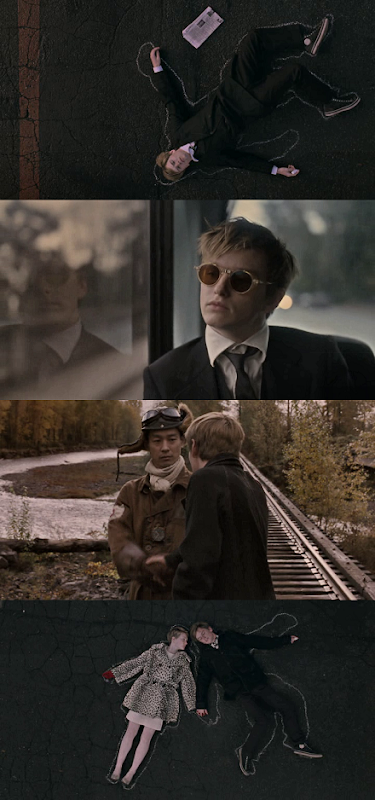
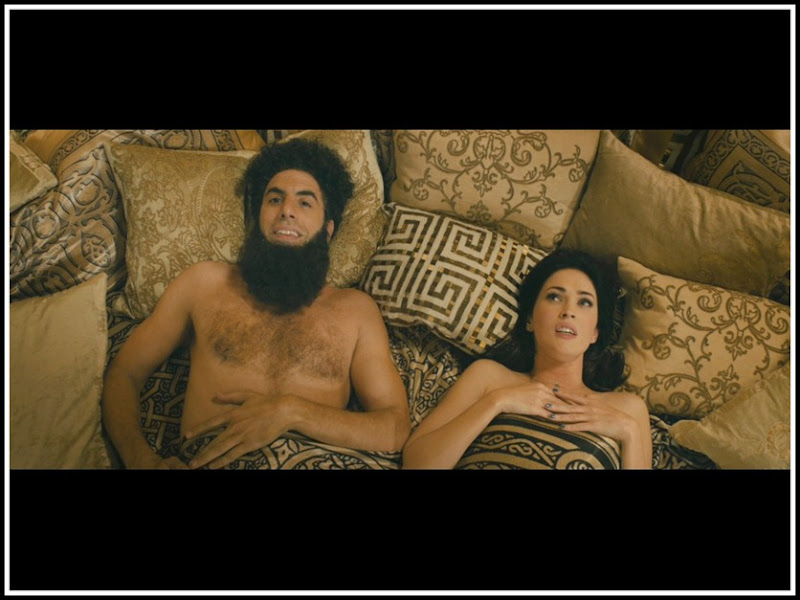
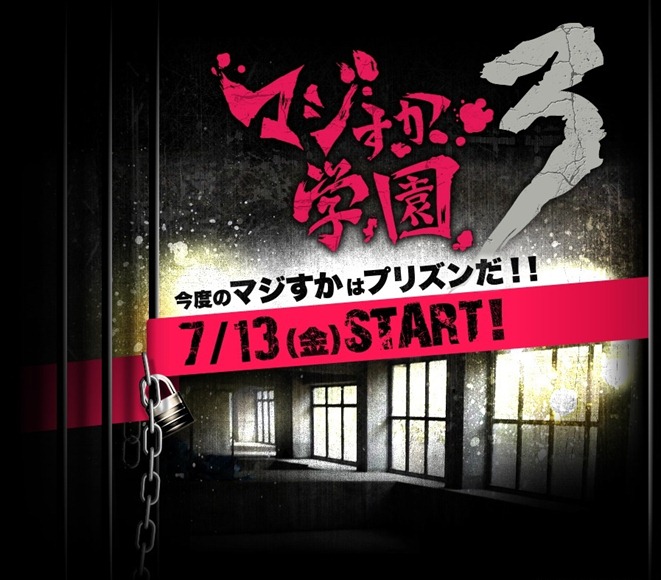
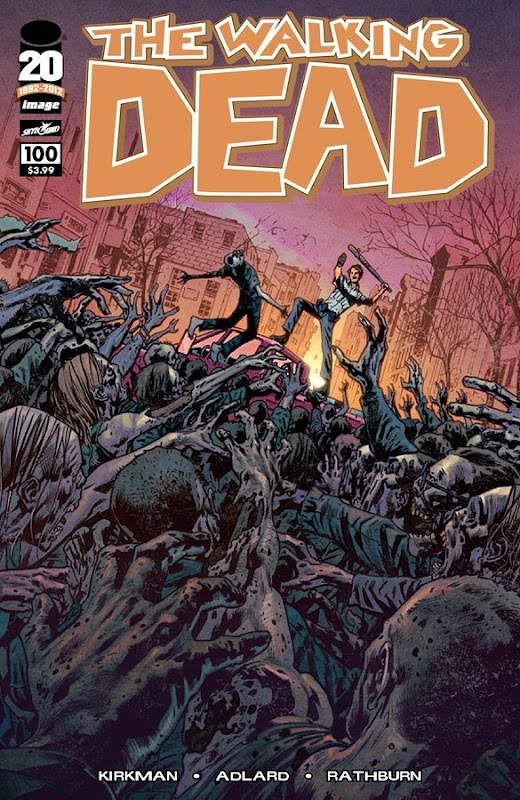
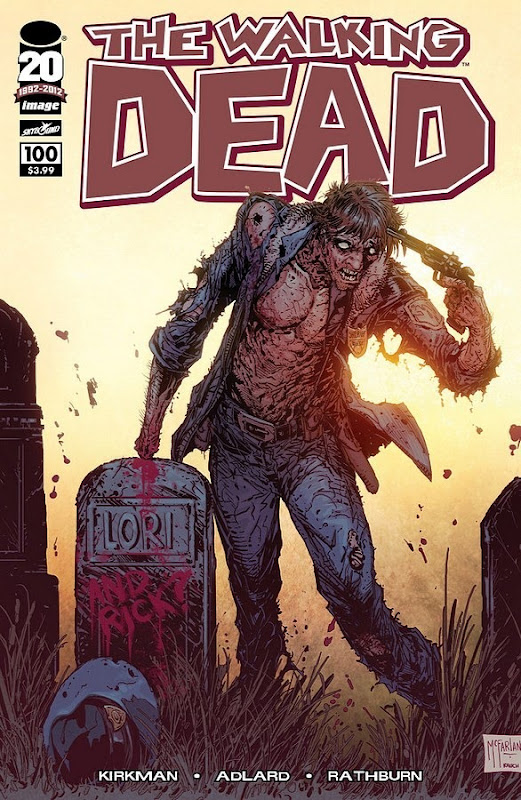
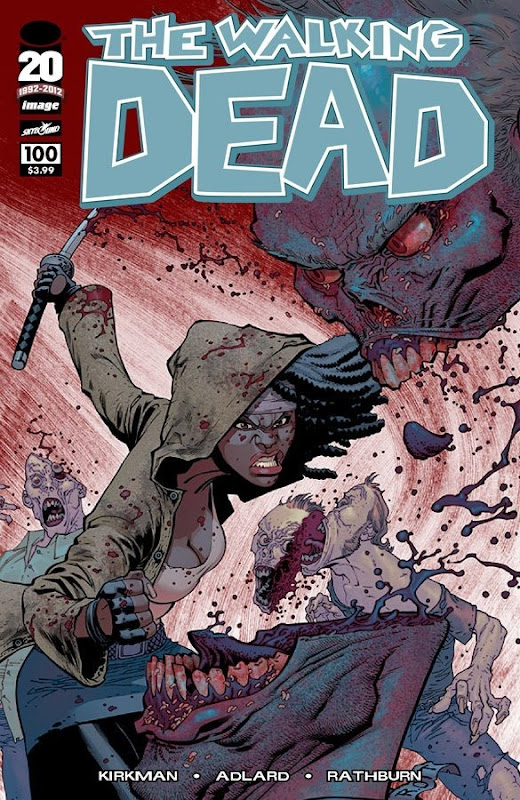


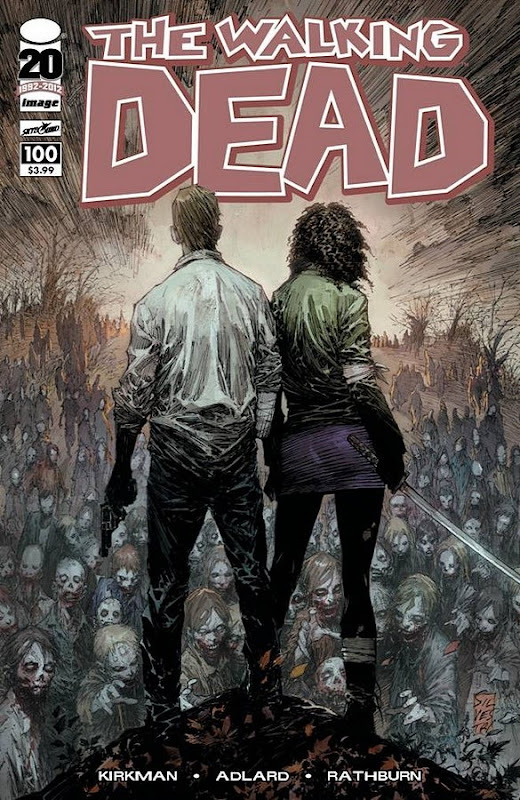
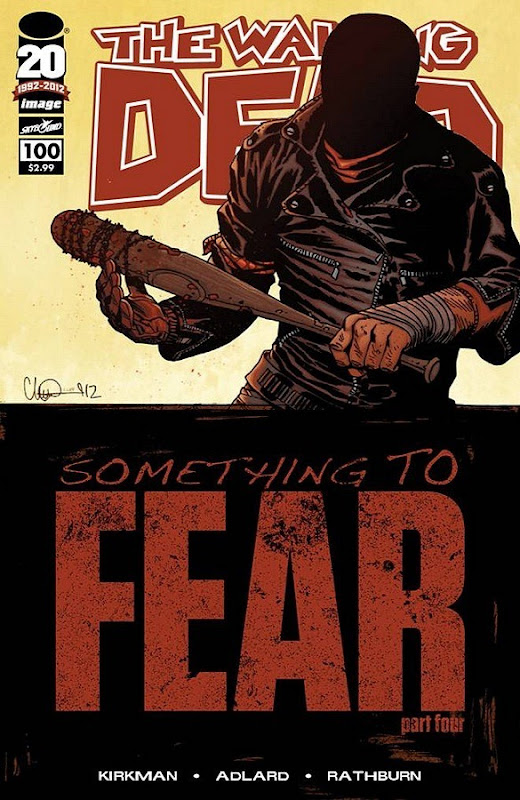




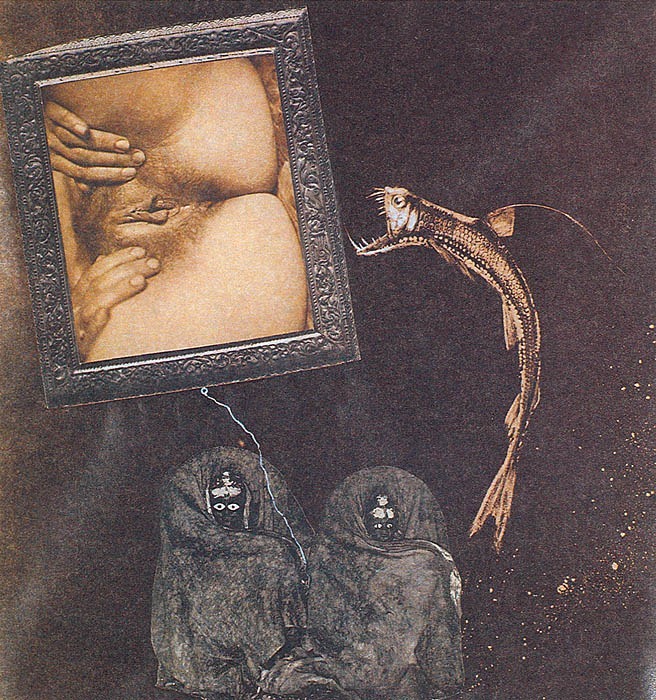
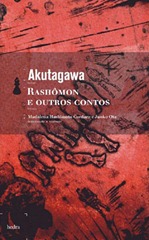
![033[2] 033[2]](http://lh5.ggpht.com/-9YC5XzyugMQ/T9xxLyz91dI/AAAAAAAAVVs/BmX6jOwBPGU/033%25255B2%25255D_thumb.jpg?imgmax=800)
